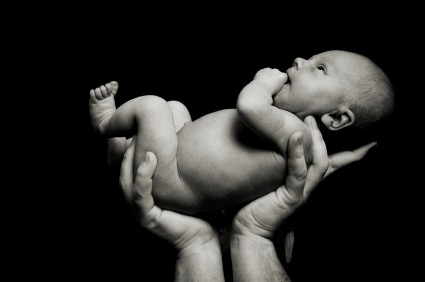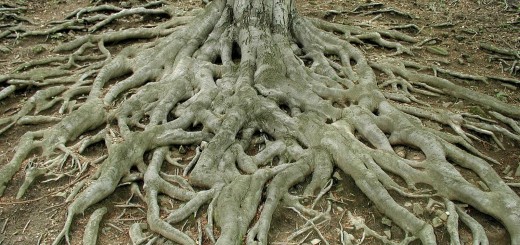The importance of knowing our roots
 We ended up chatting about this last night. About where the red hair that pops up in glints in the hair and the beards in our family comes from. About whether we are all descended from Vikings. About the fact that we are all mixed race.
We ended up chatting about this last night. About where the red hair that pops up in glints in the hair and the beards in our family comes from. About whether we are all descended from Vikings. About the fact that we are all mixed race.
On a more serious note, I’ve observed in my adopted daughter how important it’s been to her identity to know her roots. As a fourteen year old, the sparse information we had about her birth family was not enough. She needed to know more. To meet them. To find out the answers to the questions that we didn’t have the answers to. It was nothing to do with whether we were good parents or not. Other people looking in felt bad for us, like it was a reflection on our parenting. I didn’t feel that. It was unsettling and scary for us, yes, but I could understand her motivation. She need to know where she came from.
For all of us, our identity is tied up in our roots. For most of us, we don’t have to think about that much, because it’s pretty straightforward – although it’s usually never as straightforward as we first imagined, as those who start to dig deep and become fascinated with their ancestry find out!
As my daughter has discovered (the hard way!), we are shaped by our roots but we don’t have to let ourselves be defined by our roots. She has actively broken free from her roots and is not going to let history repeat itself. She is determined to be a good mum to her newborn child, to do it differently from the way her birth mum did it. That is an over-riding motivation for her.
In my own experience, I have spent my whole life from a young age being told how much like my mum I am. As a teenager, I looked at my mum and didn’t what to become what she was. Instead of ‘like my mum’, I heard ‘you are the same as your mum’. She was a wonderful woman, but there were things about her that I didn’t want to become. I was terrified that I was not my own person, that I was not in control of who I would become. I can see now that I have had a choice through life. I have been able to relax into the parts of me that are so like my mum, but I can recognise that I am not her. I am my own person. My roots can shape me but they do not have the power to define me.
For Matthew, the writer of the first book of the New Testament, roots mattered. As a good Jew, he understood the importance of lineage. The whole of the Old Testament was built on the relationship between the one true God and His people. I’ve been writing about that here for the last three and a half years! One of the things this God was passionate about was not being compromised by the surrounding nations and marrying foreign women. He knew how easy it would be then for the people to dilute their faith and traditions. To flirt with foreign women would lead to flirting with foreign gods. It happened time and time and time again. And so lineage mattered.
Matthew opens his account of the life of Jesus with a precis of his lineage.
This is the genealogy of Jesus the Messiah the son of David, the son of Abraham:
Abraham was the father of Isaac,
Isaac the father of Jacob,
Jacob the father of Judah and his brothers,
Judah the father of Perez and Zerah, whose mother was Tamar,
Perez the father of Hezron,
Hezron the father of Ram,
Ram the father of Amminadab,
Amminadab the father of Nahshon,
Nahshon the father of Salmon,
Salmon the father of Boaz, whose mother was Rahab,
Boaz the father of Obed, whose mother was Ruth,
Obed the father of Jesse,
and Jesse the father of King David.
David was the father of Solomon, whose mother had been Uriah’s wife,
Solomon the father of Rehoboam,
Rehoboam the father of Abijah,
Abijah the father of Asa,
Asa the father of Jehoshaphat,
Jehoshaphat the father of Jehoram,
Jehoram the father of Uzziah,
Uzziah the father of Jotham,
Jotham the father of Ahaz,
Ahaz the father of Hezekiah,
10 Hezekiah the father of Manasseh,
Manasseh the father of Amon,
Amon the father of Josiah,
and Josiah the father of Jeconiah and his brothers at the time of the exile to Babylon.
After the exile to Babylon:
Jeconiah was the father of Shealtiel,
Shealtiel the father of Zerubbabel,
Zerubbabel the father of Abihud,
Abihud the father of Eliakim,
Eliakim the father of Azor,
Azor the father of Zadok,
Zadok the father of Akim,
Akim the father of Elihud,
Elihud the father of Eleazar,
Eleazar the father of Matthan,
Matthan the father of Jacob,
and Jacob the father of Joseph, the husband of Mary, and Mary was the mother of Jesus who is called the Messiah.
Thus there were fourteen generations in all from Abraham to David, fourteen from David to the exile to Babylon, and fourteen from the exile to the Messiah. Matthew 1:1-17
 Right from the start, Matthew refers to Jesus as the Messiah, the one the Jews have been waiting for, the one promised by God to deliver His people. The word ‘Messiah’ in Hebrew means ‘Anointed One’. In Greek, the equivalent is ‘Christ’.
Right from the start, Matthew refers to Jesus as the Messiah, the one the Jews have been waiting for, the one promised by God to deliver His people. The word ‘Messiah’ in Hebrew means ‘Anointed One’. In Greek, the equivalent is ‘Christ’.
We tend to skip over this genealogy as boring and irrelevant, but for the Jews, this lineage would have been exciting and entirely relevant. That Jesus could be traced back to David and Abraham was highly significant. He was the real deal. And Matthew finds a pattern there – there were fourteen generations in all from Abraham to David, fourteen from David to the exile to Babylon, and fourteen from the exile to the Messiah – that adds to the significance. Jesus was not some random dude. He arose out of a rich tradition. This was part of a plan.
There are some surprises in there if you know your Biblical history. Ruth, for example, was a Moabite woman. Solomon’s mother was Bathsheba, another man’s wife when King David took her as his own. No family line is perfect, not even Jesus’. There will always be some surprises. God works with people, despite their flaws and failings. And actually, what’s really interesting to me is that genealogy ends with Joseph, the father of Jesus. Who technically was not the father of Jesus at all. Because Jesus was the son of God. I don’t therefore really understand why the lineage of Joseph matters, unless it’s that Jesus will be born and brought up within that framework, at the heart of the Jewish tradition. There is much that is a mystery to me about what we’ve come to know as the Christmas story, but I guess that’s not surprising – this is God made flesh and these writers are simply trying to get their heads round this mind-blowing concept and make sense of it all and find words to explain it to their readers….
One final thought: Jesus was to be shaped by his roots, as we all are. He was to be brought up a Jew, aware of the Jewish back story into which he has been born. His Jewish roots would provide the backdrop to his life. And yet Jesus is not defined by his roots. He ends up not being the Messiah the Jews have been expecting and longing for but an entirely different kind of deliverer all together. That’s why so many of the Jewish people of his day struggle with him – with his teachings and his actions and everything about him. He came from their tradition and then spent his whole life blowing it apart, showing them a new way to live, a better way to live. And challenging them to see that this new way of living in relationship with God is not just for them, but for all people everywhere.
Let’s face it, no one makes themselves popular in their families and communities if they try to break free from the way it’s always been done. This baby born into the Jewish tradition is going to change the world forever. He’ll change the way people can come to God and relate to God. He’ll call into question the values and laws that this nation has been built on. He’ll bring everything back to love and how we treat others over and over and over again. He’ll lead by example and show love in action every single day. Where he comes from is huge, because what he is about to do in his time on earth takes the relationship God has formed with His people since the time of Abraham and transform it into something entirely new.
And so this boring and irrelevant genealogy is not so boring and irrelevant after all. It places Jesus firmly in the Jewish tradition, firmly in a precise point in history. This is God made flesh remember. God made flesh at a fixed point in time and place. I’m picturing a funnel here – the vastness of God’s immense glory funnelled down into a fixed point – a tiny point in time and space, a tiny baby….
Wow.
Just wow.
O come let us adore him…













